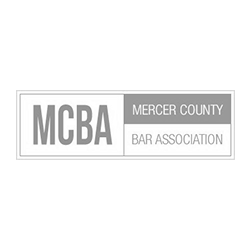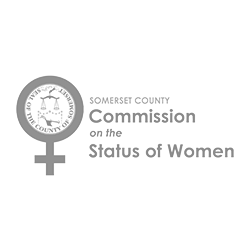How to Protect Your Business From Sexual Harassment Claims
All New Jersey employers are subject to claims for sexual harassment and other forms of unlawful discrimination. Fortunately, there are a few inexpensive steps businesses can take to significantly reduce their exposure and risk. Several recent cases help provide guidance on common pitfalls and errors that can lead to liability for employee claims.
Sexual Harassment Law
There are two categories of sexual harassment: 1) quid pro quo, where an employee’s submission to sexual demands is a condition of employment and 2) hostile work environment, where an employee is harassed because of his or her sex to the point at which the working environment becomes hostile.
Employer Liability
Employers are strictly liable for all equitable damages required to remedy adverse employment actions resulting from sexual harassment, e.g., reinstatement, back pay or front pay. Employers are liable for additional compensatory damages in cases where the employer was negligent with respect to prevention or addressing sexual harassment, and for sexual harassment by supervisors if the supervisor is acting within the scope of his employment or in cases where the employer delegates to the supervisor control of the work environment and the supervisor abuses that authority.
Employer Defenses
An employer may be able to avoid liability if it can show that it took effective preventative steps, including 1) formal policies prohibiting harassment in the workplace; 2) complaint structures for employees’ use, both formal and informal in nature; 3) anti-harassment training, which must be mandatory for supervisors and managers, and must be offered to all employees of the organization; 4) the existence of effective sensing or monitoring mechanisms to check the trustworthiness of the policies and complaint structures; and 5) an unequivocal commitment from the highest levels of the employer that harassment will not be tolerated, and demonstration of that policy commitment by consistent practice. In determining whether an employer has implemented effective preventative measures, the following factors are important: 1) periodic publication of the employer’s anti-harassment policy; 2) the presence of an effective and practical grievance process for employees to use; and 3) training for workers, supervisors, and managers concerning how to recognize and eradicate unlawful harassment. Thus, if the right steps are taken, New Jersey law permits an employer to assert the existence of an effective anti-harassment workplace policy as an affirmative defense to sexual harassment claims.
What Not to Do
A. Allen v. Adecco, Inc. In this case, plaintiff’s supervisor allegedly made repeated sexual comments and touched her inappropriately. Plaintiff’s suit was allowed to proceed to trial because 1) it was unclear whether plaintiff ever received a copy of the employer’s sexual harassment policy; 2) plaintiff did not receive any sexual harassment training; 3) the supervisor was not familiar with the employer’s sexual harassment policy; 4) there was no evidence of effective monitoring and sensing mechanisms; and 5) the employer had reason to question the efficacy of its harassment policy but did nothing to address the issue. B. Wallace v. Mercer County Youth Detention Center In this case, plaintiff alleged that a co-worker attempted to pursue her sexually, made sexual comments to her, and touched her inappropriately. An incident report was filed with the employer’s supervisor and then given to the harassing employee. The harassment allegedly continued after the filing of the report. After further delay, the report was sent to the personnel department. Nearly a month went by before plaintiff was contacted concerning the report. An assistant personnel director who had last attended a sexual harassment training seminar ten years earlier was assigned to investigate the matter. The investigator concluded that there was not enough information to sustain the charge because 1) the incident was not reported immediately; 2) certain information was withheld; 3) plaintiff expressed she did not want the harassing employee to be terminated; and 4) there were no witnesses. The court, however, allowed the suit to proceed to trial because there was evidence that: 1) supervisors were not adequately trained on how to handle sexual harassment claims; 2) the employer did not comply with the confidentiality requirements of its policy; 3) the employer unduly delayed its investigation; and 4) harassment continued during the investigation period. There were additional questions concerning whether the policy was adequately disseminated; the lack of a discernible criteria to apply when evaluating a claim; and whether or not there were effective monitoring procedures.
Lessons Learned
In many cases employers can avoid liability for sexual harassment by 1) establishing and regularly disseminating a sexual harassment policy; 2) establishing and implementing effective formal and informal complaint structures; 3) providing periodic sexual harassment training to supervisors and employees; 4) employing regular and effective monitoring mechanisms to determine whether the policy is working; and 5) demonstrating an unequivocal commitment from the highest levels that harassment will not be tolerated.
-


-
Sharon Dragan - Special Occasion Events on Preserved farmsAttorney Dragan presented at the Municipal Clerks' Association of New Jersey Conference in Atlantic City in April on the topic of Special Occasion Events on Preserved farms from a municipal perspective. She presented along with two representatives from the NJ State Agriculture Development Committee, and analyzed how the new law on Special Occasion Events affects municipal administration and application of the NJ Municipal Land Use Law and Right to Farm Act. -
Hammett- Estate Planning Article Series
Tips for College Students & Parents: Be Prepared
As families begin to plan for their child’s transition into college, there are many practical logistics to consider. One such item that should be on the top of the list is to ensure they are prepared to be on their own from a legal perspective. At Mason, Griffin & Pierson, we offer a program to counsel college students and their parents in such matters. To find out more about preparing documents for your student, Click Here.
“Do I really need a Will?“ The answer for almost all adults in New Jersey, from those just starting out to those well into retirement years, is yes, you should have a Will.
At Mason, Griffin & Pierson, we can assist clients develop a comprehensive estate plan to express their wishes that incorporates, as appropriate, estate and gift tax planning strategies and prepare the documents. Documents include Last Wills and Testaments, Powers of Attorney, and Advance Directives for Health Care.
To find out more about estate planning, Click Here. To schedule a no obligation consultation, Click Here. -
New Reporting Requirements Corporate Transparency Act On January 1, 2024, reporting requirements under the Corporate Transparency Act ("Act"), went into effect. All businesses subject to the Act will have to report specific information on the company and certain individuals that own and/or control the company. Mason, Griffin & Pierson is happy to guide you through this reporting process and answer any questions that you may have. Please do not hesitate to reach out if you would like our assistance.
On January 1, 2024, reporting requirements under the Corporate Transparency Act ("Act"), went into effect. All businesses subject to the Act will have to report specific information on the company and certain individuals that own and/or control the company. Mason, Griffin & Pierson is happy to guide you through this reporting process and answer any questions that you may have. Please do not hesitate to reach out if you would like our assistance.
-
Sharon A. Dragan receives the Michael A. Pane Ethics In Government Award Congratulations to Sharon A. Dragan for receiving the Michael A. Pane Ethics In Government Award. The award was presented by the NJILGA at the New Jersey State League of Municipalities November convention. The Michael A. Pane Ethics In Government Award honors a municipal professional who exemplifies the highest standards of ethics and whose work has significantly enhanced the integrity of local government. November 2023
The Michael Pane Award, established by the Pane Family and the New Jersey State League of Municipalities, is given in honor of Michael A. Pane, Sr., who was the long-time editor of the Municipal Law Review, president and trustee of the New Jersey Institute of Municipal Attorneys, counsel to the New Jersey Association of Municipal Clerks, counsel to the League of Municipalities and author of the New Jersey Practice Series, Local Government Law volumes.
Congratulations to Sharon A. Dragan for receiving the Michael A. Pane Ethics In Government Award. The award was presented by the NJILGA at the New Jersey State League of Municipalities November convention. The Michael A. Pane Ethics In Government Award honors a municipal professional who exemplifies the highest standards of ethics and whose work has significantly enhanced the integrity of local government. November 2023
The Michael Pane Award, established by the Pane Family and the New Jersey State League of Municipalities, is given in honor of Michael A. Pane, Sr., who was the long-time editor of the Municipal Law Review, president and trustee of the New Jersey Institute of Municipal Attorneys, counsel to the New Jersey Association of Municipal Clerks, counsel to the League of Municipalities and author of the New Jersey Practice Series, Local Government Law volumes.
-
Liz Zuckerman appointed to the District VII Ethics Committee: The Supreme Court of New Jersey appointed Elizabeth Zuckerman to serve on the District Ethics Committee for District VII (DEC VII) for a three-year term. The district includes Mercer County. August 23, 2023
The Supreme Court of New Jersey appointed Elizabeth Zuckerman to serve on the District Ethics Committee for District VII (DEC VII) for a three-year term. The district includes Mercer County. August 23, 2023
-
Paul M. Bishop named Director We are pleased to announce the election of Paul M. Bishop to the Board of Directors, Mason, Griffin & Pierson, PC. Paul, one of the firm’s senior litigators, practices business, commercial, and general litigation, and represents clients in complex disputes throughout New Jersey’s state and federal courts. July 2023
We are pleased to announce the election of Paul M. Bishop to the Board of Directors, Mason, Griffin & Pierson, PC. Paul, one of the firm’s senior litigators, practices business, commercial, and general litigation, and represents clients in complex disputes throughout New Jersey’s state and federal courts. July 2023
- June 2022
- October 2021
- May 2021
- March 2021
- February 2021
- January 2021
- December 2020
- March 2020
- February 2020
- January 2020
- December 2019
- October 2019
- July 2019
- June 2019
- May 2019
- March 2019
- January 2019
- December 2018
- November 2018
- October 2018
- September 2018
- June 2018
- May 2018
- April 2018
- March 2018
- February 2018
- January 2018
- December 2017
- November 2017
- October 2017
- September 2017
- August 2017
- June 2017
- May 2017
- April 2017
- February 2017
- December 2016
- November 2016
- October 2016
- September 2016
- July 2016
- June 2016
- May 2016
- April 2016
- March 2016
- February 2016
- January 2016
- December 2015
- November 2015
- October 2015
- September 2015
- July 2015
- June 2015
- May 2015
- April 2015
- March 2015
- February 2015
- January 2015
- December 2014
- November 2014
- October 2014
- September 2014
- August 2014
- July 2014
- June 2014
- May 2014
- April 2014
- March 2014
- February 2014
- January 2014
- December 2013
- November 2013
- October 2013
- September 2013
- August 2013









